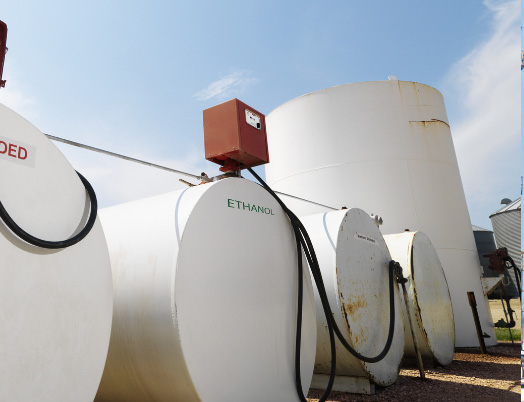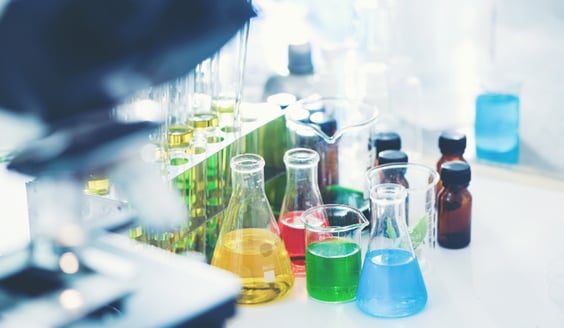Biofuel - Ethanol inspections.
Guarantee adherence to standards for compliance, quality, and safety throughout the process of producing, distributing, and utilizing ethanol.
Ethanol inspections refer to the process of evaluating and examining facilities, equipment, and practices involved in the production, storage, transportation, and distribution of ethanol. Ethanol is a type of alcohol commonly used as a fuel additive or as a renewable energy source. Inspections are conducted to ensure compliance with safety regulations, quality standards, and environmental guidelines to prevent accidents, ensure product integrity, and protect the environment.

The purpose of ethanol inspections is to ensure the safe, efficient, and environmentally responsible production, storage, transportation, and distribution of ethanol. These inspections serve several crucial objectives:
Safety Assurance: Ethanol is a highly flammable substance. Ethanol inspections are conducted to verify that facilities, equipment, and processes adhere to strict safety standards. By identifying potential hazards, such as leaks, fire risks, or inadequate ventilation, inspections help prevent accidents, protect workers, and safeguard surrounding communities.
Accident Prevention: Ethanol inspections play a vital role in preventing accidents that could result in harm to personnel, damage to property, or adverse effects on the environment. By enforcing safety protocols and evaluating emergency response plans, inspections help mitigate risks and ensure a swift, effective response in the event of unforeseen incidents.
Environmental Protection: Ethanol production and distribution can have environmental impacts, including air and water pollution. Inspections ensure that operations are carried out in accordance with environmental regulations. They verify that waste management practices, pollution controls, and spill prevention measures are in place to minimize negative environmental effects.
Quality Control: Ethanol used as a fuel additive or energy source must meet specific quality standards. Inspections verify that production processes are consistent and that the final product meets the required specifications. This ensures that consumers receive a reliable and consistent product.
Regulatory Compliance: Ethanol inspections ensure compliance with local, regional, and national regulations governing the ethanol industry. By verifying adherence to these regulations, inspections help prevent legal issues, fines, or shutdowns that may arise from non-compliance.
Transparency and Accountability: Ethanol inspections promote transparency and accountability within the industry. By conducting regular assessments and maintaining accurate records, inspections provide a clear overview of operations and help maintain trust between regulators, producers, and the public.
Emergency Preparedness: Ethanol inspections assess the readiness of facilities to respond effectively to emergencies such as spills, leaks, or fires. Inspections ensure that appropriate safety equipment is available, personnel are adequately trained, and contingency plans are in place to mitigate and manage emergencies.
Continuous Improvement: Ethanol inspections provide opportunities for facilities to identify areas for improvement in their operations. By addressing issues highlighted during inspections, facilities can enhance their processes, safety measures, and overall efficiency.
Public Health and Community Safety: Ethanol facilities are often located near populated areas. Inspections help safeguard public health and community safety by ensuring that potential risks associated with ethanol production and distribution are minimized and properly managed.
Promotion of Sustainable Practices: Ethanol is often produced from renewable sources such as corn or sugarcane. Inspections encourage the adoption of sustainable practices by verifying that ethanol production aligns with eco-friendly principles, such as efficient resource utilization and waste reduction.

Use our global database of professionals.
At Inspexion.com, we provide a variety of inspection quotes for Biofuel inspections. We pride ourselves on being the quickest and most cost-effective way for you to get the right audits done. Simply sign up and post a request for services and our network of qualified inspectors will bid for your project. Select the quote that suits your budget and timeframe and an experienced inspector will do a Biofuel Inspection and send you a report in your chosen time frame - it's never been easier to book an inspection.
By leveraging our international network of over 165 000 Inspectors locations, we can provide the greenest inspection services.
At Inspexion.com, we are proud to be a green solution inspections marketplace.

Why Choose Us
Global Network of Professionals
Vetted and registered professional's in a worldwide network.

Define your own
Timeline
Define the timeframe for inspections, assign deadlines for the report submissions!

Manage from one Dashboard
Appoint multiple inspectors in multiple countries to inspect multiple specifications, and manage them all from one dashboard!





